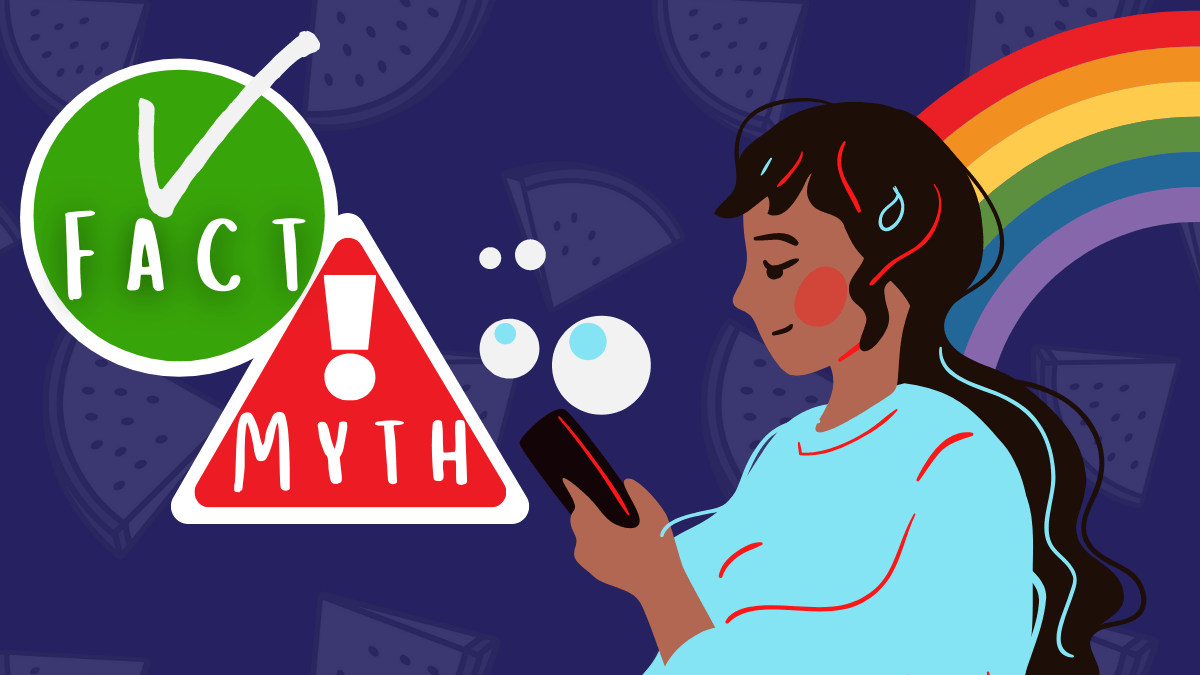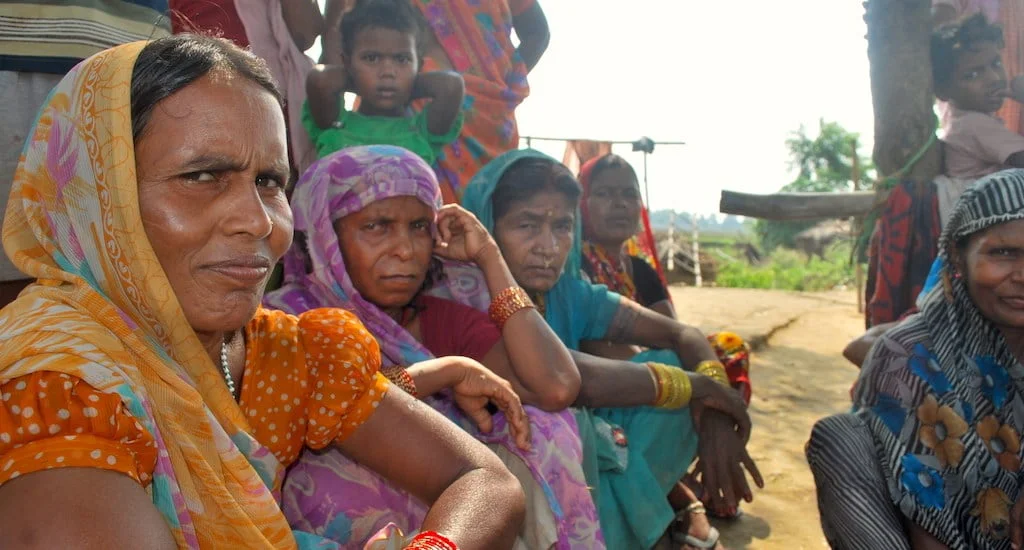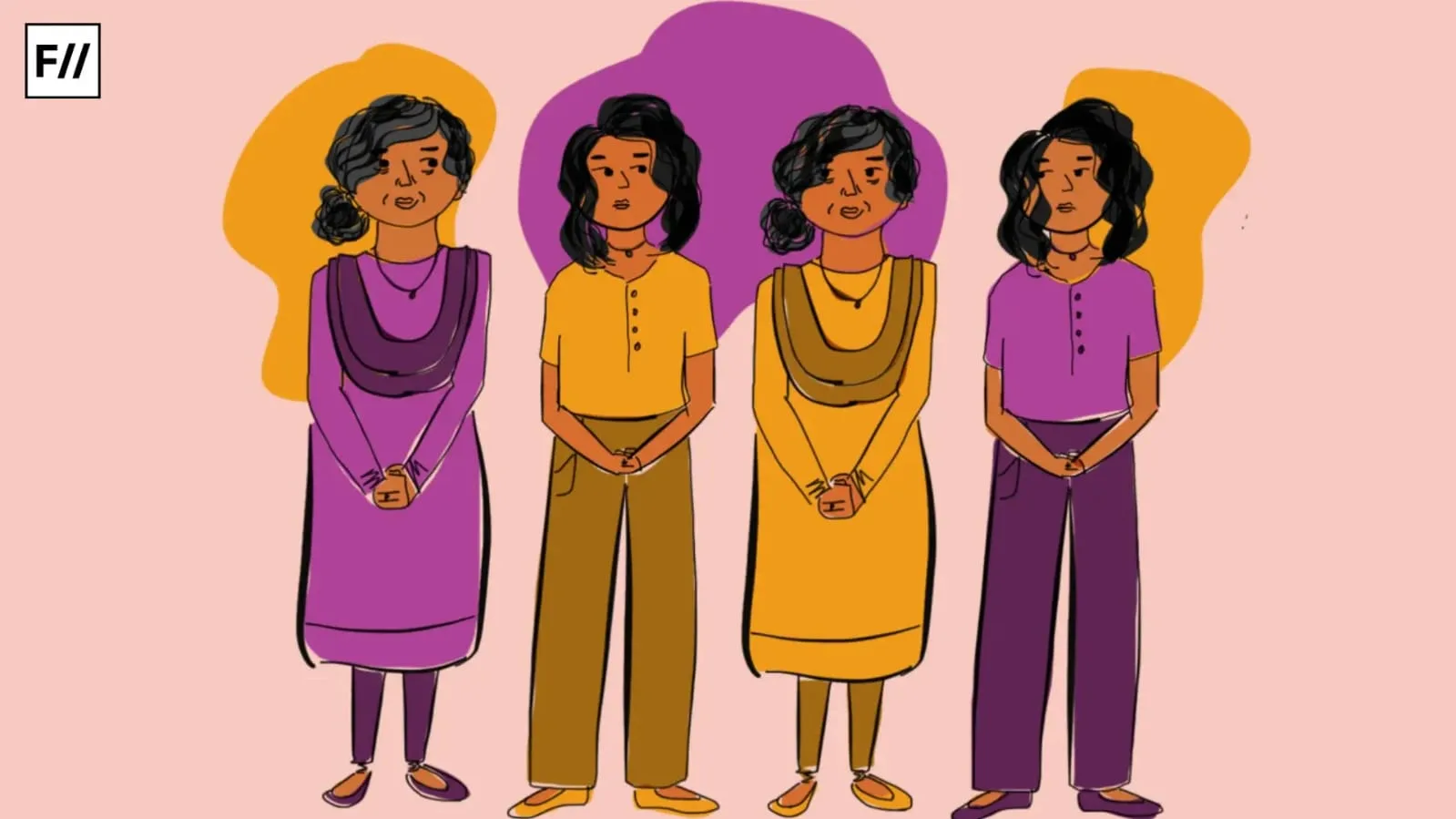Mental health, only recently has become an active topic of debate and dicussion. While it still struggles to make itself known, because physical ailments still occupy the predominant spaces of the discourse around health and well being; there have been progressive conversations around the topic in social media and more recently, in mainstream media. But often, even those conversations may have prejudices insidiously embedded within them. Even the laws and policies that we have in place are not adequately implemented. Further, it is seen as a sign of weakness, hence, dominant gender groups face tremendous difficulties in confronting and recognising their mental health issues. Along with that, marginalised sections of the society lack a safety net in the form of financial help to access therapy and support. They are often find themselves at the receiving end of both physical as well as emotional health oppressions, giving rise to different kinds of vulnerabilities.
To combat such misconceptions, there is a dire need to create safe spaces for interaction and support groups for financial and social security. Here are some of the common mental health myths that Feminism In India has busted for you. Hope we all can learn and unlearn together!
1. MYTH: One can Simply Snap Out of Depression
FACT: Depression isn’t a sign of self-pity, weakness or laziness. It’s a medical condition in which your brain chemistry, function and structure are negatively affected by environmental or biological factor. There are variety of ways to treat depression, including psychotherapy, medication and counselling.
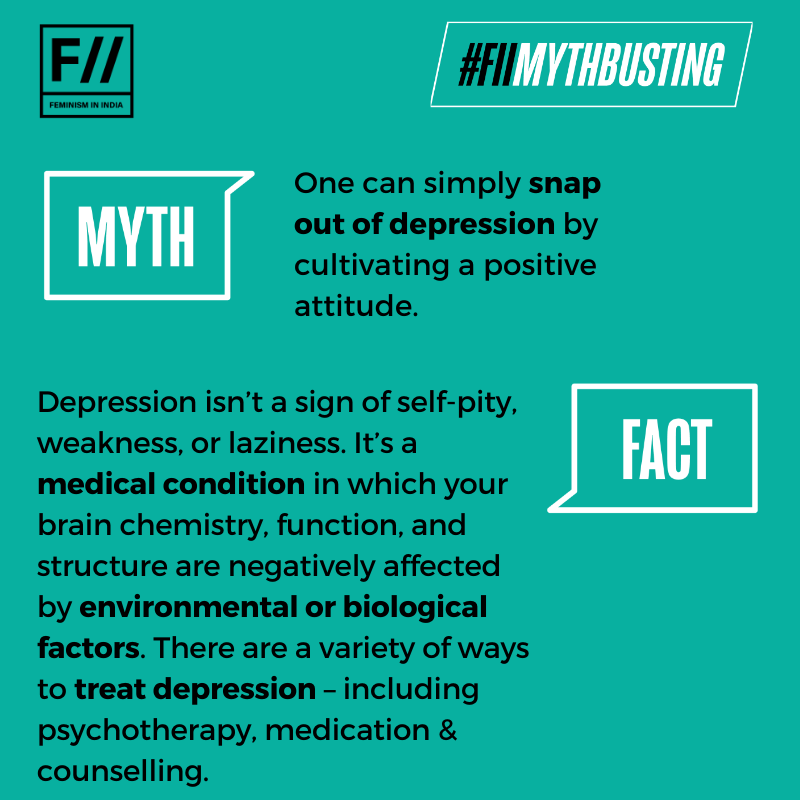
2. MYTH: Mental Health Conditions are a Sign of Weakness or Character Flaws
FACT: Multiple factors can contribute towards the development of mental health conditions such as genes, life experiences, injury etc. Just like other physical conditions such as brain disease or heart disease, anyone can develop a mental health condition. The development of these conditions cannot be attributed to either mental or physical strength.
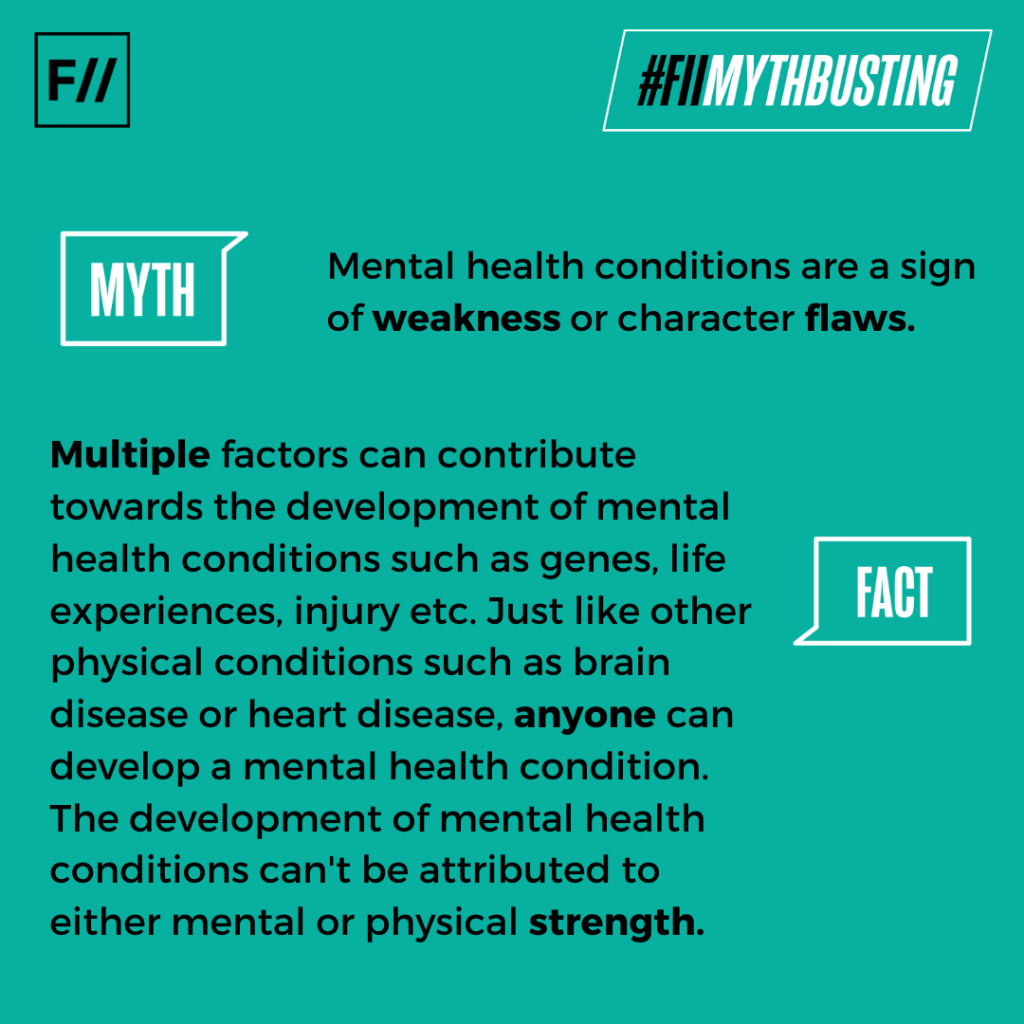
3. MYTH: Depression is a Sign of Weakness Thus, It Doesn’t Happen to Men
FACT: Mental illnesses are not synonymous to weakness, just like masculinity shouldn’t be with masochism. Anyone can show signs of disruptive mental health irrespective of their gender and sexual orientation. Telling men to ‘man-up’ reinforces emotional repression. Instead we should normalise being emotionally receptive and sensitive and to speak out whenever in distress.
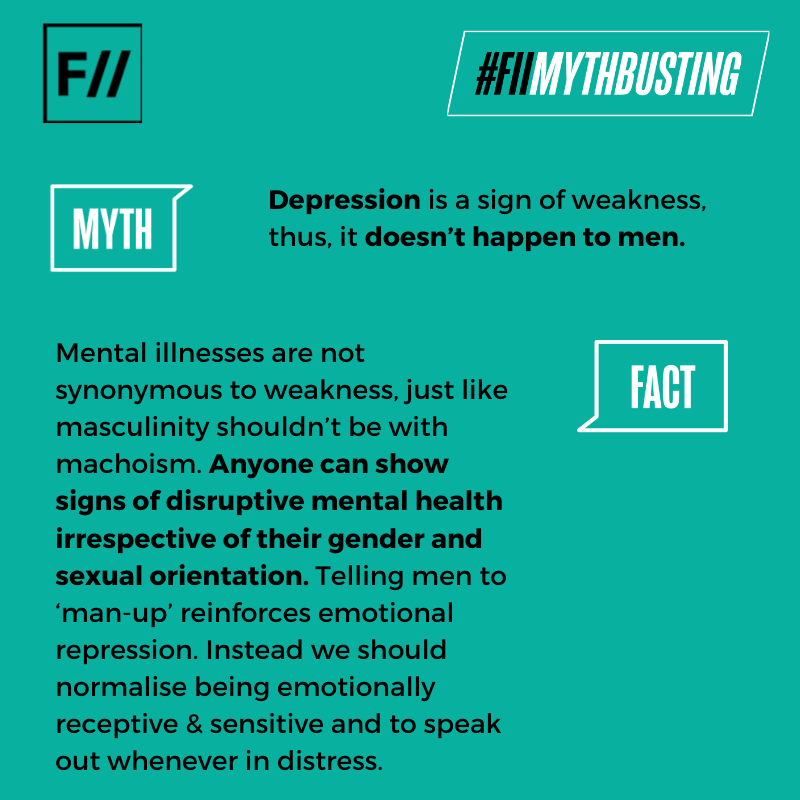
4. MYTH: We Can’t Do Anything For a Person Struggling with Mental Health Problems. Only They Can Help Themselves
FACT: Care for a person with mental illnesses does not end with therapy or medication. A person struggling with mental health issues requires a nurturing and a stigma-free environment to heal better. We need to be wary of individualising mental health care and focus on community care as well. One’s mental health problems are greatly shaped by social factors.
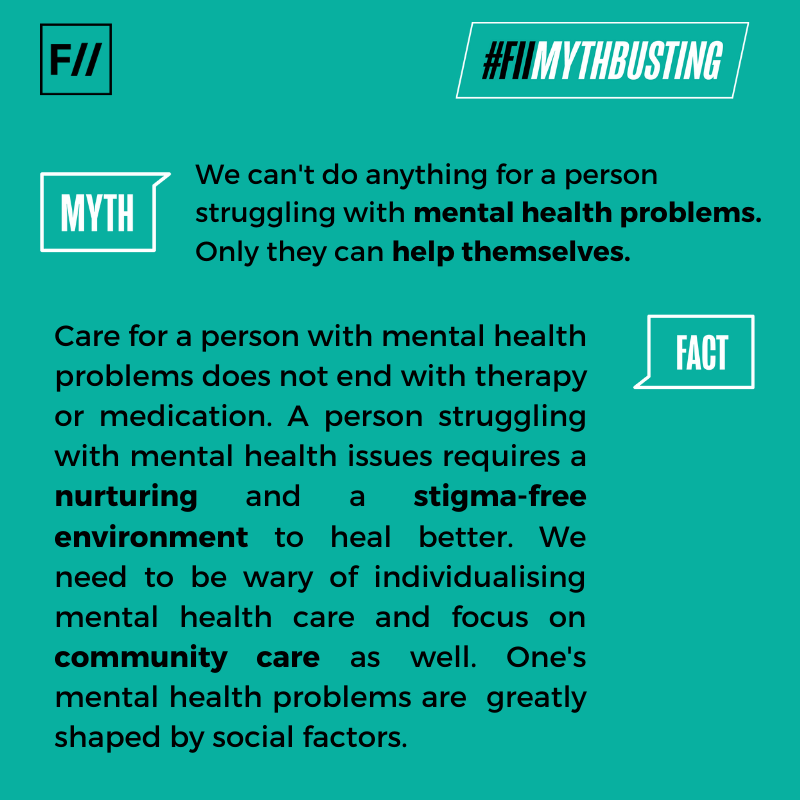
Also read: Being Sentimental: A Man’s Journey Towards Affectionate Love
5. MYTH: Mental Health Illnesses Reflect an Attitude or Personality Problem and can be Overcome with Willpower
FACT: Of course, attitudes make a difference to our health and how we manage illnesses. However, they need to complement and supplement proper healthcare. Mental illnesses aren’t a result of personality deficiency of some kind. They are caused by biological, social and environmental factors. Just as we would prioritise professional medical care to treat physical illnesses, mental illnesses require the same kind of medical attention and treatment.
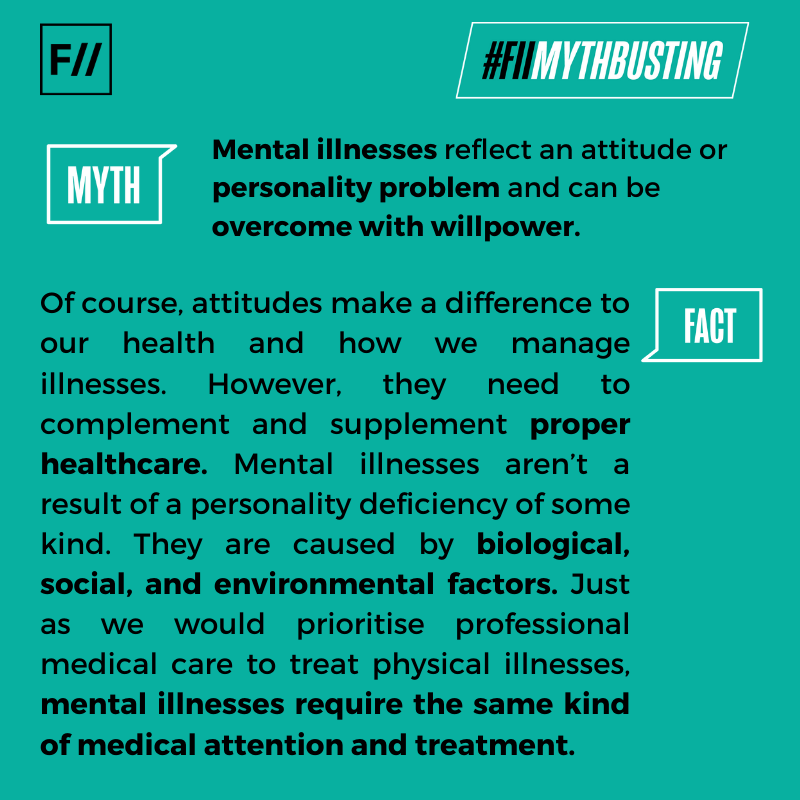
6. MYTH: Mental Health Conditions are A First-World Problem and Not Really Present in India
FACT: Mental illnesses or health conditions are as much a problem in India as they are globally. Over 90 million Indians suffer from mental health issues. Recent data from WHO shows that suicide rates for Indian men and women are 1.5 and 2 times the global suicide rate respectively. In fact, mental health situation in India urgently requires policy interventions and institutional changes. Such myths make it harder to seek medical and professional help.
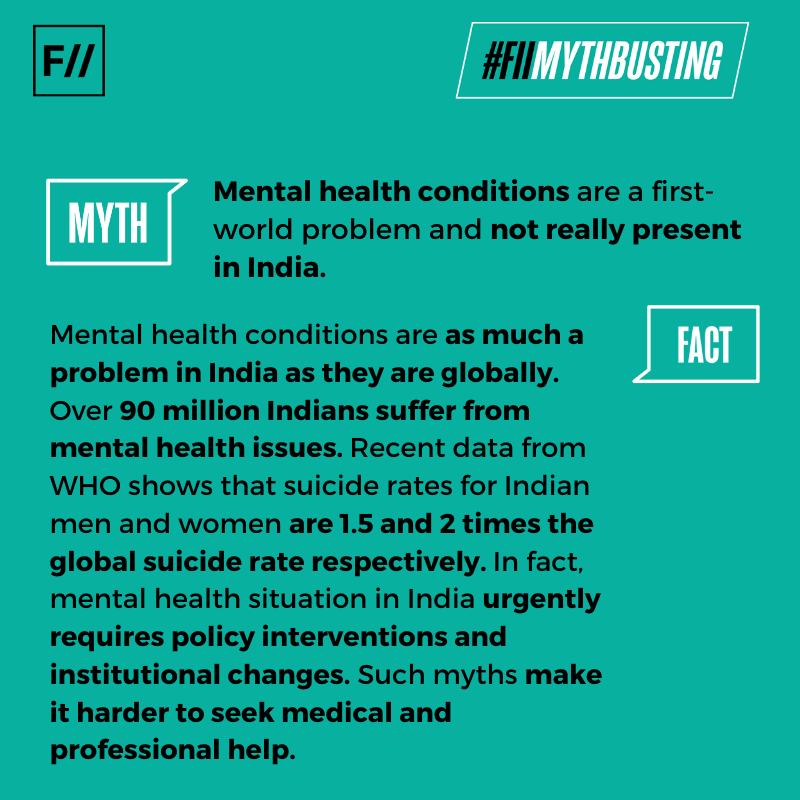
About the author(s)
Feminism In India is an award-winning digital intersectional feminist media organisation to learn, educate and develop a feminist sensibility and unravel the F-word among the youth in India.
